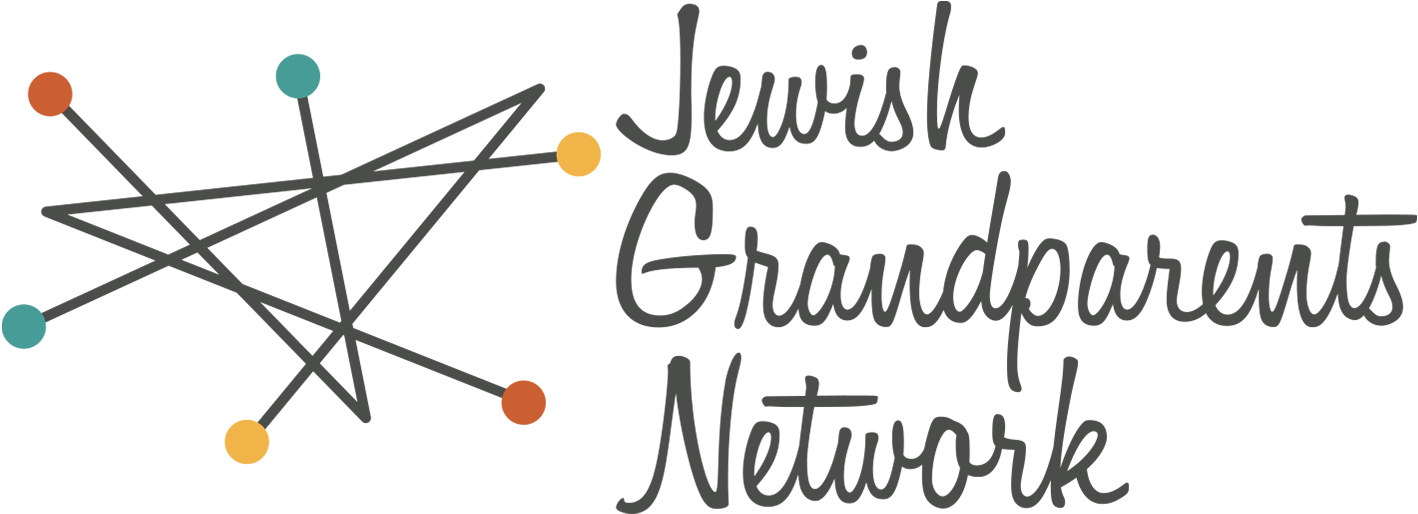
Nov 04 2020 Connecting with Your Grandchildren in Pandemic Times and Beyond
Ages:
AdultIf the Corona Virus teaches us anything, it is that our relationships matter and that our relationships won’t last forever. We know this. Yet, the current pandemic has heightened our awareness of life’s preciousness in a far greater scope than most of us have ever experienced in our lives.
So, what do we do with this awareness?
We focus on connecting with the people we love.
In this article, I speak specifically to relationships between grandparents and grandchildren. As a rabbi and chaplain in a retirement community, as a granddaughter for over 40 years, and as a middle-aged mom watching my father (z’l) and mother grandparent my son, I have witnessed the power and strength of the grandparent-grandchild relationship, and I have seen how it is possible to deepen, heal and uplift this relationship. The scenarios I created below offer three ways to approach the grandparent-grandchild relationship with intention.
Share Your Experiences (Even the Hard Ones)
You’re talking to your 14-year-old granddaughter on face time or perhaps you’re sitting together at a six-foot distance. She asks how you are. You say, “Not so good. I just heard that a dear friend of mine died.” Your voice wavers as you speak. Tears fall. You think to yourself, Why did I share my grief with my granddaughter? I could have shared it with a friend. You change the topic. “And how are you, honey?” you ask.
She’s a precocious one that granddaughter of yours. She will not let you change course. She says, “Grandma, I’m sad that you’re sad.”
Go with it. Follow her lead. Oftentimes our grandchildren are our teachers. Model for her how important it is to grieve, to talk about someone who has died. Be vulnerable. Give her the opportunity to comfort you. To ask you questions. To imagine what it feels like to have someone you love die. Tell her you’re sad, that it hurts deep inside, that it helps to talk about your friend. “Can I tell you a few stories about her?” you ask. Your granddaughter is all ears.
After a few stories, your granddaughter says, “She sounds so nice. It must be hard.” Silence follows. You’re thinking about your friend. Your granddaughter is thinking about you. Moments later your granddaughter says, “Grams, I’m afraid of you dying.”
How do you respond? Because how you respond matters. It matters to your relationship with your granddaughter, and it matters to your granddaughter.
You talk for a while. Maybe you ask her what she’s most afraid of? Eventually, you’ll tell her that one day you will die, but you hope to be here on this planet for many more years, and that when you die, your love for her will never end, as you will be in her heart always. You remind her that she can remember you by telling stories about you after you die, just like you did for your friend.
When you speak openly about death, you give your granddaughter permission to share her fears about death. You remove the taboo around death. You make death part of life.
Begin to Heal Your Relationship by Being Honest About the Past
You have three grandchildren. You’re close to two of them. One of them you have no real relationship with, though you see him at family gatherings. During the pandemic you’ve had a lot of time to think about your life and your relationships. Too much time in fact. And this relationship keeps coming up. Your grandson is about to graduate from college. It’s an online graduation. You learn about it from your daughter. She doesn’t even ask if you want the link to attend. That hurts. You understand where it’s coming from. You’ve absented yourself from this grandson’s life for too many years.
It’s time to make a change. You think about calling your grandson. That doesn’t feel right. It would be odd to suddenly call after all these years. Besides, if he sees your number, he probably would not pick up. So, instead you decide to write him a letter. You’re not sure what you’ll say, but you know you must begin. When you start to write, you’re surprised how much you learn about yourself.
“Dear Max, It’s Grandpa Joe. I’ve had a lot of time during this pandemic to think about my life. The pieces of my life I’m proud of. The pieces of my life that hurt. What keeps coming up is my relationship with you. It would be more correct to say, my lack of relationship with you.
“I’ve been thinking back to our early years together. Our relationship never gelled. Maybe it was because you reminded me of the parts of myself that I didn’t like. Maybe it was because you didn’t give me the attention I expected, so I pulled away from you and threw myself into my relationships with my other grandchildren. Maybe it was because I never took an interest in the things you were interested in…. And maybe it was because…” And so you continue.
Perhaps you end with something like, “I’m writing to you because I’m sad that we don’t have a relationship. I’m sad that I hurt you by pulling away. Your mom and dad have been on my case for years, but I refused to take responsibility. I didn’t want to believe that our lack of relationship was because of me. I didn’t want to face myself. Please forgive me. I would like to be a part of your life. I would like to learn more about you, what you’re up to, what you’re passionate about. I would like to say, ‘I’m sorry,’ in person. Please give me a second chance.”
When you reach out with your whole heart in an open, honest and vulnerable way, when you take responsibility for your mistakes, when you ask for forgiveness, you are not only doing what you need to do for you, you are modeling for your grandchild how to begin to heal a relationship.
Deepen Your Relationships
You are blessed to have close relationships with all of your eight grandchildren. Each relationship is different, reflective of who that grandchild is. You’re in your early 90’s and not sure how much more time you have left on this earth: the pandemic, your heart. So, you’ve decided to reach out to each of your grandchildren to highlight their strengths, to uplift them, to share what you love about them, and how grateful you are for them, to tell them you believe in them. And maybe, after you complete these letters, you will send similar letters to your children.
At first, you imagine calling each grandchild by phone, but then you decide that doesn’t feel quite right. You think, what if I’m only able to reach two grandchildren? What if they speak to the others who haven’t yet heard from me? That may make the others feel bad. Also, you think, If I call each one, maybe they’ll worry that I’m actively dying. So, instead you decide writing letters is the better way to go. This way you can spend time on each letter and think deeply about each grandchild. You smile as you write, imagining each grandchild saving your letter to pull out and read during the hard times in their lives. You think, Who knows? Maybe my letters will outlive me.
It takes you a month. You write a few drafts of each letter. You know that your grandchildren may share your letters to them with each other, so you want to be sure that each letter is unique.
When you finish writing and editing, and you think you’ve got it, you read each letter out loud twice. The first time, you read the letters from your point of view, to see if you’ve said all you needed to say. The second time, you read the letters from each of your grandchildren’s point of view, to make sure that each letter is written in a way that speaks to that particular grandchild. You send the letters off. You wait.
Two of your grandchildren respond right away. One of them tells you how much your letter meant to him, and how it came just at the right time when he so needed to hear your words. Another grandchild tells you that she loved your letter so much, and she plans to respond, but before she does, she has to write to someone she knows who needs a letter of love, appreciation and uplift, and thank you grandpa, for giving me the idea.
You feel sad that you haven’t heard from your other grandchildren. Then you think back to when you were in your teens and your mother wrote you an amazing letter that pulled you out of a horrible funk, and you realize you never thanked her for it. You didn’t feel the need. That letter was a gift. And, as you think about it, you wonder if you still have her letter in your special box of saved items. You head off to find that box with her letters inside.
Rabbi Elana Zaiman is the author of The Forever Letter. She is a chaplain in a retirement community in Seattle, WA. For additional information or to connect with Elana, please visit: www.elanazaiman.com



 We use technologies like cookies to remember your preferences. Consenting to these technologies will provide you with a better browsing experience. JGN never shares information about your use of our website.
We use technologies like cookies to remember your preferences. Consenting to these technologies will provide you with a better browsing experience. JGN never shares information about your use of our website.